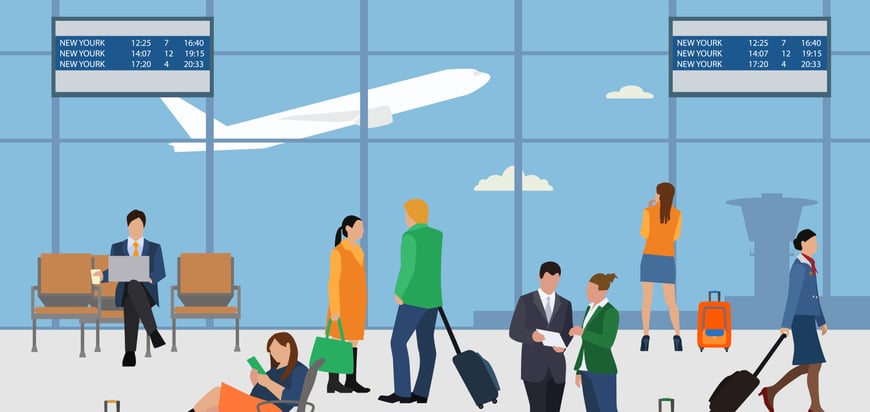
For those property owners who have rented student housing or other properties to international students and tenants, collecting past due rent can be quite a burden to bear. From tenant screening to tracking down the debtors after they've moved out, many property managers might contend to avoid international tenants at all. While collecting past-due balances from international tenants (student housing or conventional) is no easy task, there are ways of ensuring the job can be a little easier.
Here are precautions to consider when renting to international tenants.
Renting to International Tenants
Before even renting to tenants, landlords and property managers must have accurate information and a way to collect rent. Considering that international tenants may not have a social security number or previous U.S. address, there may not be much information to obtain. What follows is a list of ways to ensure that you will be able to collect rent:
- Complete and accurate Rental Applications: Check to make sure all fields (current and prior addresses) are complete. Having an international tenant in collections becomes much more difficult when the only address on-file is that of their current US apartment.
- One of the best ways the apartment industry can protect itself from outstanding balances on international tenant accounts is to require a larger security deposit when renting to international applicants. This can be defined in the property’s rental criteria and resident screening guidelines. If no US Credit History Report is available (to assess the financial risk), consider a 3 month, 6 month (or more) security deposit that is paid prior to move-in.
- Additionally, Property Managers may consider requiring rental payments by credit card. Although credit card payments carry a processing fee, this fee is small compared to the potential risk of losing months of skipped rent or charges resulting from property damage. Having the credit card (and authorization to bill the credit card for damages) could help down the road.
- Require a Co-Signor or Guarantor. Having a second party on the lease that is responsible for the balance (especially with international foreign exchange students) is a great way to ensure your rental income is protected. As noted above, consider requiring a credit card from the Guarantor or setting up an ACH automatic payment. ACH payments are electronic payments created when a customer gives an originating creditor (i.e. Landlord) authorization to debit directly from their bank account for the purpose of bill payment.
communication With International Tenants
Collecting a past-due balance from an international tenant can be a challenge. Many of the tools utilized by domestic collection agencies are not readily available for international accounts. For example, the ability to Skip Trace for updated contact information (phone and address data) is significantly diminished. In addition, you also lose the leverage of reporting their account to the major US Credit Bureaus (TransUnion, Equifax and Experian).
The simplest contact method for reaching an international tenant is email. However under the regulations of the Fair Debt Collection Practices Act (FDCPA), email poses a potential breach in "Right party contact". Meaning, if the email address is a "shared" account that the tenant uses with his/her family, a collection agency would be putting themselves at risk by disclosing their attempt to collect a debt within an email. The exception to this is when the tenant as 'opted-in' to such communication.
Getting paid
here are the steps a collection agency may take when collecting rent from an international tenant.
- Once the account is sent to collections and the address is identified as an International location, the account is typically pulled from the standard lettering batch and a separate letter file is created.
- Additional postage must be added to the letter (however the content remains the same) and the notification is sent.
- When contacting an International account via telephone, many collection agencies will refrain from utilizing predictive dialing or automated IVR messaging. (This helps reduce the risk of timezone errors and/or language barriers.)
- Collection agents will manually dial the international phone number and proceed with standard collection attempts.
- Once contact is made, reducing subsequent communications by accepting a credit card on the initial call (settlement-in-full, or payment-in-full) is the best way to ensure the account is resolved efficiently.
Collecting from international tenants can be a challenge but with some planning and foresight, many property owners can avoid some of the headache.



